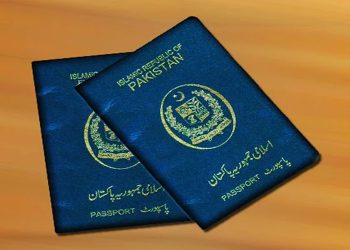‘World No Tobacco Day’ is being observed today (Monday) to highlight the hazards associated with the use of tobacco and receive global pledges from people around the world to quit the menace.
This year the theme for the day is ‘Commit to quit’. The day highlights the efforts being made by governments, civil society and individuals across the globe to safeguard the health of people through preventive, persuasive and punitive measures against the use of tobacco.
The day informs the public on the dangers of using tobacco, the business practices of tobacco companies, what WHO is doing to fight the tobacco epidemic, and what people around the world can do to claim their right to health and healthy living and to protect future generations.
The member states of the World Health Organization (WHO) created World No Tobacco Day in 1987 to draw global attention to the tobacco epidemic and the preventable death and disease it causes.
Today is #WorldNoTobaccoDay! ????
The #COVID19 pandemic has led to millions of tobacco users saying they want to quit.
Join communities of quitters and commit to quit today ????https://t.co/otu6PR8BIp pic.twitter.com/e9QObUQiUL
— World Health Organization (WHO) (@WHO) May 30, 2021
Quit Smoking pledge
The WHO has launched a campaign in which people have pledged to quit smoking. The ‘Commit to Quit’ tobacco campaign has made resources freely available to more than a billion tobacco users. WHO launched the campaign to support those millions of tobacco users who are actively taking steps to save their lives, but still need help to succeed.
The campaign is currently working directly with 29 countries on selected activities, including running national awareness campaigns, releasing new digital tools, revising policies, engaging youth, training health workers, opening new cessation clinics, supporting nicotine replacement therapies, establishing national toll-free quit lines, and making quitting courses available.
The Quit Challenge gives daily notifications of tips and encouragement for up to 6 months to help people remain tobacco free. It is available for free on WhatsApp, Viber, Facebook Messenger and WeChat.
Tobacco use
Globally, roughly 39% of men and 9% of women use tobacco. The highest smoking rates are currently found in Europe at 26%, with projections only showing a 2% decrease by 2025 if urgent government action is not taken.
Despite these challenges brought on by the tobacco industry, the world has seen significant progress in tobacco control. Smoke-free policies have the potential to protect non-smokers, including over 65,000 children and adolescents who die every year from exposure to second-hand smoke.
Tobacco costs economies over US$ 1.4 trillion in health expenditures and lost productivity, which is equivalent to 1.8% of annual global GDP. Increasing tobacco taxes helps make these lethal products less affordable and helps cover healthcare costs for the diseases they create.
There has never been a better time to quit tobacco, and commitment to helping tobacco users quit is critical to improving health and saving lives.
READ MORE: World No Tobacco Day: Protecting youth from harmful effects of smoking
Quitting #tobacco and related products is hard, but with the right support and tools, you can do it!
Keep it in mind that:
????QUITTERS ARE TRULY WINNERS.#TobaccofreePakistan #HealthForAll pic.twitter.com/GqSgyKXbdA— WHO Pakistan (@WHOPakistan) May 30, 2021
Smoking in Pakistan
Pakistan is also marking the “World No Tobacco Day” in which awareness will be created among the masses about the dangers and adverse effects of tobacco on our health.
In Pakistan, 19% of the people, over the age of 15 years, use tobacco in any form, and tobacco kills 118,000 people in the country every year. It also costs the country Rs615bn per annum on smoking-related illnesses.
Pakistan has placed a complete ban on advertisements of tobacco and tobacco-related products. The sale of loose cigarettes is prohibited, as well as the display of banners and placards of cigarette brands at the point of sale. Pakistan has also outlawed selling cigarettes near educational institutions.
Pakistan made a commitment in 2005, when it signed the World Health Organization’s (WHO) Framework Convention on Tobacco Control (FCTC), to reduce tobacco consumption and ensure the right of people to the highest standards of health.





































